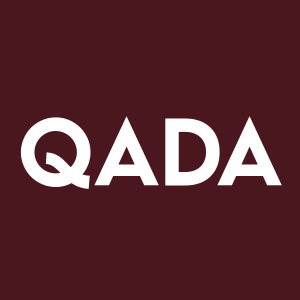QAD Announces Latest Version of QAD Adaptive ERP and Enhancements to the Adaptive Applications Portfolio
New supplier relationship management and sourcing solutions added to Integrated Supplier Management capabilities
Global manufacturers face ever-increasing disruption, including the COVID-19 pandemic, technology-driven innovation, changing consumer preferences and government regulations. Digitizing and managing supply chains has become increasingly crucial, with manufacturers pressed to rethink their business models and processes in the face of constant change.
"While the latest release of QAD Adaptive ERP continues to add functionality across all five of our critical capabilities, I am happy to announce the addition of QAD Sourcing and QAD Supplier Relationship Management (SRM) to our Integrated Supplier Management capabilities," said QAD CEO
Based on QAD’s acquisition of Allocation Network, QAD’s new SRM gives manufacturers and their suppliers a single point of entry to facilitate real-time communication, improve procurement processes and reduce inbound supply risks. It delivers value across direct and strategic indirect procurement activities by improving strategic sourcing, supplier quality management, contract management and supplier performance.
Another new solution, QAD Sourcing adds new capabilities to further automate the source-to-contract process. This especially helps buyers better source direct materials and save valuable time when sourcing low-value or highly standardized products and services that do not require detailed communications with suppliers.
In addition to the latest updates to QAD Adaptive ERP, which features the QAD Enterprise Platform and Adaptive UX, QAD has enhanced related solutions in its Adaptive Applications portfolio, including QAD DynaSys DSCP (Digital Supply Chain Planning), QAD EQMS (Enterprise Quality Management System) and QAD Precision GTTE (Global Trade & Transportation Execution). QAD Precision GTTE has also added a new
For details of the specific enhancements made to QAD Adaptive ERP and its related solutions, please visit the QAD Blog.
About QAD – Enabling the Adaptive Manufacturing Enterprise
Founded in 1979 and headquartered in
“QAD” is a registered trademark of
Note to Investors: This press release contains certain forward-looking statements made under the "safe harbor" provisions of the Private Securities Litigation Reform Act of 1995, including, but not limited to, statements regarding projections of revenue, income and loss, capital expenditures, plans and objectives of management regarding the company's business, future economic performance or any of the assumptions underlying or relating to any of the foregoing. Forward-looking statements are based on the company's current expectations. Words such as "expects," "believes," "anticipates," "could," "will likely result," "estimates," "intends," "may," "projects," "should," "would," "might," "plan" and variations of these words and similar expressions are intended to identify these forward-looking statements. A number of risks and uncertainties could cause actual results to differ materially from those in the forward-looking statements. These risks include, but are not limited to: risks associated with the COVID-19 (novel coronavirus) pandemic or other catastrophic events that may harm our business; adverse economic, market or geo-political conditions that may disrupt our business; our cloud service offerings, such as defects and disruptions in our services, our ability to properly manage our cloud service offerings, our reliance on third-party hosting and other service providers, and our exposure to liability and loss from security breaches; demand for the company's products, including cloud service, licenses, services and maintenance; pressure to make concessions on our pricing and changes in our pricing models; protection of our intellectual property; dependence on third-party suppliers and other third-party relationships, such as sales, services and marketing channels; changes in our revenue, earnings, operating expenses and margins; the reliability of our financial forecasts and estimates of the costs and benefits of transactions; the ability to leverage changes in technology; defects in our software products and services; third-party opinions about the company; competition in our industry; the ability to recruit and retain key personnel; delays in sales; timely and effective integration of newly acquired businesses; economic conditions in our vertical markets and worldwide; exchange rate fluctuations; and the global political environment. For a more detailed description of the risk factors associated with the company and factors that may affect our forward-looking statements, please refer to the company's latest Annual Report on Form 10-K and, in particular, the section entitled "Risk Factors" therein, and in other periodic reports the company files with the
View source version on businesswire.com: https://www.businesswire.com/news/home/20211007005923/en/
Public Relations
281-221-6329
publicrelations@qad.com
or
Analyst Relations
617-869-7335
industryanalyst@qad.com
Source:







